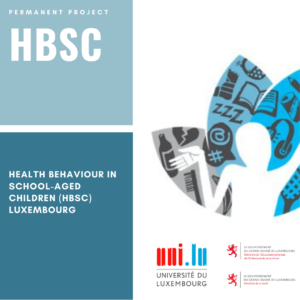Plateauing and rising levels of obesity and overweight in children and youth are growing concerns and the relations between socio-economic status (SES) and dietary behaviour and weight outcomes are very varied across countries. Empirical findings about the influences of socio-economic status (SES) on these health behaviours and outcomes differ depending on the measurement of SES used. Considering alternative conceptualisations of SES (measuring absolute, relative or subjective dimensions) is therefore advocated when analysing health inequalities in countries with high levels of overall affluence. As a country with high overall affluence and growing inequalities, Luxembourg allows for a further exploration of socio-economic inequalities in dietary behaviour and weight outcomes of young people in affluent contexts.
The analysis aims to identify the relation between socio-economic inequalities and the dietary behaviour and weight outcomes of young people in Luxembourg. Data relating to family affluence, perceived wealth, dietary behaviour and BMI was gathered from 11 to 18 year-old pupils (n= 7233) using the HBSC questionnaire in the context of the 2014 HBSC wave in Luxembourg and is analysed using multiple logistic regression.
The results indicate that there are different patterns of association of absolute, relative and subjective affluence with dietary behaviour and weight outcomes of young people aged between 11 and 18 in Luxembourg. While weight outcomes are socially stratified by all aspects of family affluence, after adjustment for overweight body image is associated to subjective family affluence and weight reduction behaviour is associated to absolute and relative family affluence. The results thus confirm a differentiated association of different aspects of SES to dietary behaviour and weight outcomes and confirm, that health inequalities between health outcomes or behaviours are linked to different processes.



